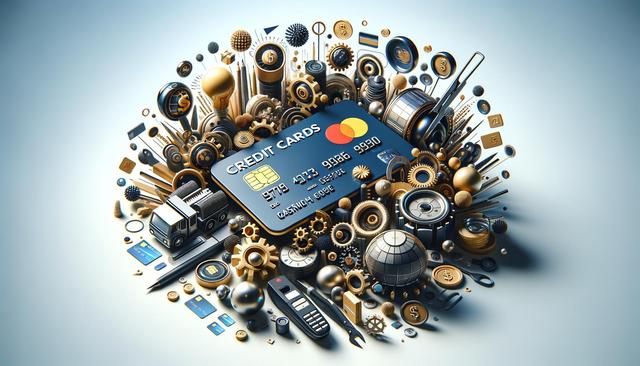What Are Credit Cards and How Do They Work?
Credit cards are financial instruments that allow users to borrow funds from a card issuer up to a certain limit to pay for goods and services. They function as short-term loans, with the expectation that cardholders will repay the borrowed amount either in full or through minimum monthly payments. Interest is typically charged on outstanding balances, which makes understanding the terms and conditions of your credit card essential. When you apply for credit card products, you are essentially entering into an agreement with a lender to manage borrowed funds responsibly.
Some credit cards offer features such as rewards programs, travel benefits, cash-back incentives, and low introductory interest rates. However, all of these benefits are only worthwhile if the card is used wisely. Misusing a credit card can lead to debt accumulation and negatively impact your credit score. By learning how credit cards work, including how instant credit card processing is handled, consumers can make informed decisions about which cards fit their financial needs.
Steps to Apply for a Credit Card
Applying for a credit card involves a few key steps that require both preparation and understanding of your financial status. Whether you are new to credit or looking to add another card to your wallet, following these steps can streamline the process:
- Check your credit score and history
- Compare credit card offers and benefits
- Determine the purpose of the card (e.g., balance transfer, rewards, building credit)
- Gather necessary documentation such as identification and income proof
- Apply through secure and reputable channels
Some providers offer guaranteed credit card approval $5000 limits, especially for individuals with stable income or those who opt for secured cards. However, it’s important to read the fine print and understand what “guaranteed” means in the context of each issuer. Not all applications are equal, and approval criteria can vary widely.
Understanding Credit Card Processing
Credit card processing refers to the steps involved in completing a transaction between the cardholder and the merchant. When a customer uses a card to make a purchase, the transaction is sent through a complex network that includes the merchant’s bank, the cardholder’s bank, and the payment processor. Instant credit card processing has become increasingly common, allowing businesses to approve transactions within seconds.
For small businesses or startups, finding the cheapest credit card processing solutions can significantly affect profitability. High processing fees can eat into margins, so it’s essential to evaluate options carefully. Some factors to consider include:
- Transaction fees per swipe or tap
- Monthly service charges
- Integration with existing sales systems
- Customer support and dispute resolution services
Understanding how processing works helps both consumers and businesses make smarter financial decisions, especially when evaluating service providers.
Managing Credit Responsibly
Once you’ve gone through the process to apply for credit card services and received approval, the next step is managing your credit responsibly. This involves using your card strategically to build a strong credit history, which can improve your access to better financial products in the future. Key practices include:
- Paying your balance in full each month to avoid interest
- Keeping your credit utilization ratio below 30%
- Monitoring your account for unauthorized transactions
- Setting up payment reminders or automatic payments
Responsible use of credit not only helps you avoid debt but also contributes positively to your credit score. This can be especially helpful when applying for other financial products like loans or mortgages. Even if you were approved for a card with terms like guaranteed credit card approval $5000, how you manage that line of credit matters more in the long term.
Choosing the Right Credit Card Processor as a Business
For businesses, choosing the right payment processor is crucial to efficient operations and customer satisfaction. Instant credit card processing capabilities can enhance the checkout experience, reduce wait times, and lower the risk of declined transactions. Business owners should also pay close attention to what is considered the cheapest credit card processing solution, not just in terms of cost but also reliability and support.
Some important questions to ask when evaluating processing services include:
- Are there setup or termination fees?
- What are the monthly minimums and chargeback fees?
- Is the system scalable as your business grows?
- Does the service offer fraud protection and encryption?
By carefully comparing services and reading user reviews, businesses can choose payment processors that align with their operational needs and budget constraints. This ensures seamless transactions and strengthens customer trust.
Conclusion: Make Informed Credit Card Decisions
Credit cards can offer convenience, flexibility, and financial leverage when used correctly. Whether you’re looking to apply for credit card options with attractive terms, are interested in guaranteed credit card approval $5000 offers, or need to set up the cheapest credit card processing for your business, the key is informed decision-making. Always take the time to research, compare, and understand all aspects of credit card use—from application to processing and management. With the right knowledge, credit cards can become a valuable asset in both personal and business finance.




Leave a Reply